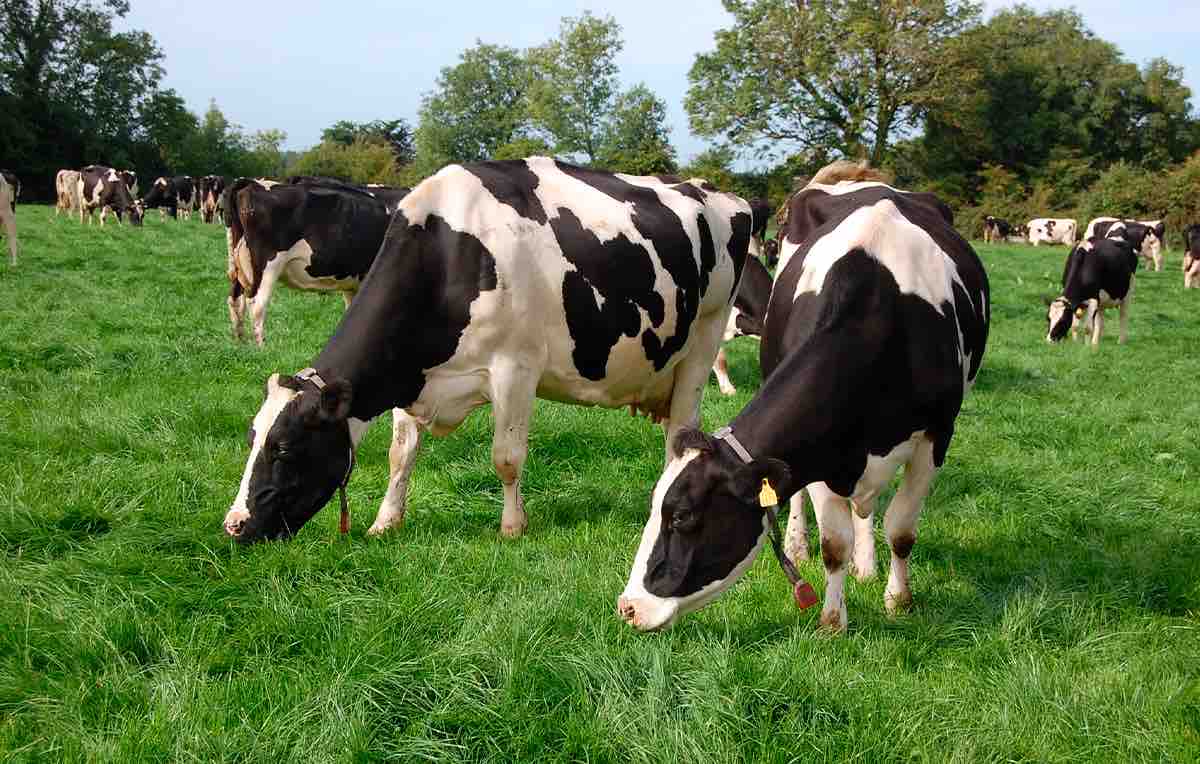Grazed nature: bales of hay with native seeds help regenerate the degraded pastures. Las hay bales made with native seeds selected for quality and production serve as a supplement to the diet of Extensive livestock farming. The work, which will deliver impactful results in the autumn, aims to generate a double benefit, both economic and environmental, through the improvement of the pasture.
Technicians from the Scientific and Technological Research Center of Extremadura (CICYTEX) work in a new pasture improvement system that uses hay bales made from native seeds Due to its quality and production, it is interesting as a supplement to the diet Extensive livestock farming. They are trying to increase the presence of these species in the Netherlands livestock farms with degraded pasturesthrough a system of sowing by grazing that makes it easier dispersal, fertilization and burial of seeds.
They selected the species for this test Ornithopus compressedpopularly known as Cat’s claw. This legume stands out for its pasture value and its ability to adapt to different environments. In addition, it has a morphology that makes it easy to cut and pack once the seeds have matured, characteristics that justify the choice based on experience.
The research is part of the national project Grazed nature, has 10 collaborating farms in areas with similar climates and soils. Two of these (donor farms) will provide hay bales of this species to eight farms in need of improvement (recipient farms) for use by livestock. The management of the livestock present on the various participating farms will form the basis of the experience; Adequate grazing allows the improvement and development of improved pastures in the action areas.
With this methodology, which has been studied in previous experiences with good results, it is expected to generate a double impact on the farms involved in the experience. On the one hand, an economic benefit for the donor farms resulting from marketing bales of seeds, and on the other hand an environmental benefit through the improvement of pasture on receiving farms.
Currently, the work team is analyzing the pastures of the collaborating farms to define a personalized management strategy for each of them. Mowing and packing will take place on the donor farms in May. The seed present in the bales is then quantified and the dosages and distribution areas of the material on the receiving companies are determined.
The researcher from the CICYTEX Field Crops area and coordinator of the trial, foresees the distribution of the hay on the receiving farms at the end of this summer, after defining a transfer protocol that guarantees the success of this system as much as possible. According to this researcher, they can start assessing the impact of the experience in the fall.
Grazed Nature Project
This study is part of the design and implementation of new economic activities related to the grazing of the project. Grazed nature. This work, led by Global Nature Foundationsearch restoration of sustainable grazing as a tool to preserve nature. The Autonomous University of Madrid and the Entretantos Foundation are also participating in the project. Grazed nature has the support of the Biodiversity Foundation of the Ministry for the Ecological Transition and the Demographic Challenge (MITECO) in the context of Recovery, Transformation and Resilience Plan (PRTR)funded by the European Union – NextGenerationEU. It will last approximately three years and has a budget of €1,894,895.

